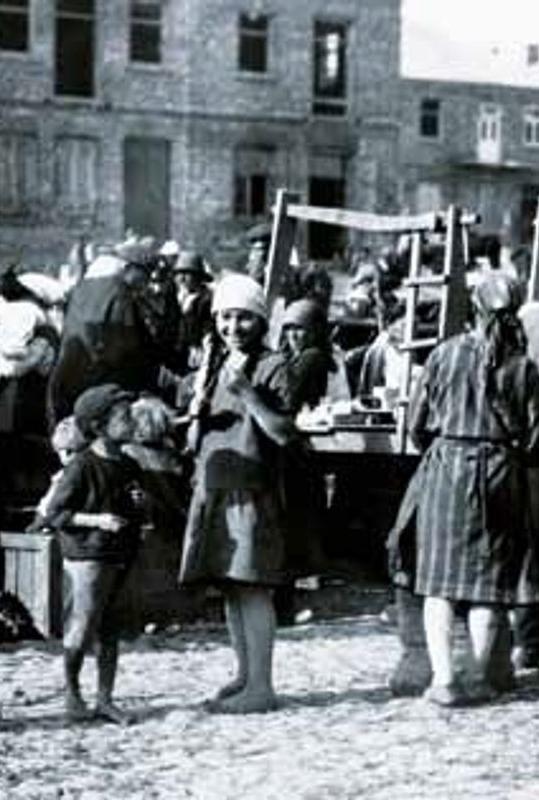The royal village of Ryki (Riki), mentioned in sources since 1424., developed along the trade route leading from Radom and Lukow towards Lithuania. In 1500. It was destroyed during the invasion of the Tatars.From 1585 Ryki was the seat of the non-golden starosty, developed as a trade and service center.From the first half of the 17th century. The estate was leased by the Ossolińskis and Lubomirskis. As a result of the wars of the second half of the 17th century, Ryki declined and lost some of its inhabitants. In 1759. The starosty of Ryki was assumed by Stanislaw Poniatowski - the voivode of Mazovia, the starosta of Cracow and the father of the later king of the Republic of Poland.Most likely, thanks to his efforts, Ryki was granted a city charter in 1782. In 1794. Much of the city burned down in a fire.After the partition of Poland, Ryki became government property.In 1810. Destroyed and depopulated, they lost their municipal rights. Another fire (1819) consumed the buildings near the market. In 1836. The estate was purchased by hr. Jan Jezierski, who thoroughly rebuilt the local palace, established 31 livestock ponds between 1836- 1843, started four mills and a sawmill, which, along with the opening (1876) of a railroad connection between Deblin and Lukow, contributed to the economic development of Ryki. During World War I, the retreating Austrian army burned Ryki, causing the population to dwindle. In 1925. A commercial and service settlement rebuilding from the devastation of war once again burned down.Jews in Ryki - Until 1918. - Although there are speculations that the first Jews may have appeared in Ryki as early as the 15th century., but they are not clearly confirmed in the surviving source materials. In the second half of the 16th century. A Jewish merchant lived here, and during the 16th and 17th centuries.Jews leased the distillery. Although by the end of the 18th century. There were restrictions on the ability of Jews to live in the center of Royk, but they were not strictly enforced.In 1764. Seventeen Jewish families lived in Ryki. Most of them made a living from crafts (baking, tailoring, shoemaking) and trade.In 1789. There was a Jewish store at the market, and local merchants traded grain on a supra-local scale. Jews leased forests, orchards, ponds, traded in fish, fruits and forest products.In the great fire (1794) many Jewish houses burned down. In the 19th century. The Jewish community grew rapidly economically and demographically. Jews lived mainly in the market square and adjacent streets: Przechodnia, Wylot, Krótka, Wjazdowa, Kanałowa, Kapitulna, Jeziorna, Łukowska and partly St. Nicholas. Leonardo. They made their living from small trade and crafts (tailoring, shoemaking, baking, butchering). There were also small Jewish industrial plants, including. leather processing and embroidery shops, as well as larger commercial enterprises run by wealthy merchants.Jews ran inns and hams.Initially they were subject to the religious community in Garwolin. Probably in the early 19th century., and certainly no later than 1842., the wealthy and growing community of Ritz Jews formed an independent community. At that time, a synagogue was erected and a cemetery was delineated.The first rabbi of Ryk was Baruch ben Meir, known as the Magid of Ryk, thanks to whom the settlement became an important center of Hasidism. In addition to the community synagogue, there were numerous shtibles, bringing together followers of individual tzaddikim. On the initiative of a Hasidic rabbi, among others, there were activities under the auspices of the Ritz community. a fund for interest-free loans, an organization to help the sick, and a night shelter for poor wanderers. Before World War I, Ryki became a local center of Zionism. In 1904. the first Zionist-oriented organization was founded, which quickly gained many supporters, especially among the young, and developed its activities during the interwar period. A little later, branches of Mizrachi, Poale Zion-Left and the Bund were founded, with a few dozen members. During World War I (1914), Jews were expelled from Ryki by the tsarist authorities as part of repression for spying for the Germans. Most of the Jews returned to Royka in 1915. - after the Central States occupied the settlement.They were then met with hostility from local anti-Semites. Due to the ongoing battles, repeated attacks on Jewish homes and stores, and worsening economic difficulties, the situation of the Jewish population in Ryki was very difficult. A kitchen for the poor operated under the auspices of the Riga community, serving 150 hot meals daily.In the city council elections (1916), representatives of the Jewish community won six of the 12 seats. .
1. Ryki - Centrum miejscowości
Stories
Ryki - center of the village
Jewish History Tours

Powered by Clio Muse Tours
Powered by Clio Muse Tours
